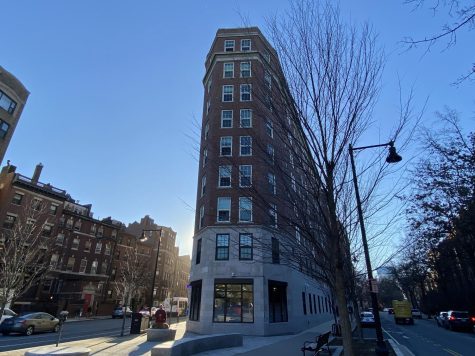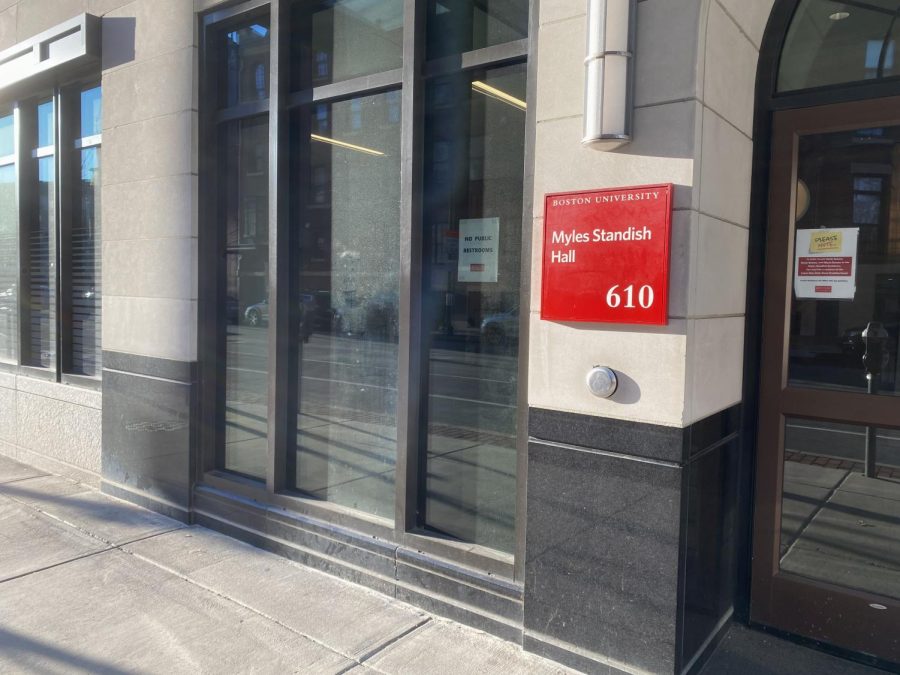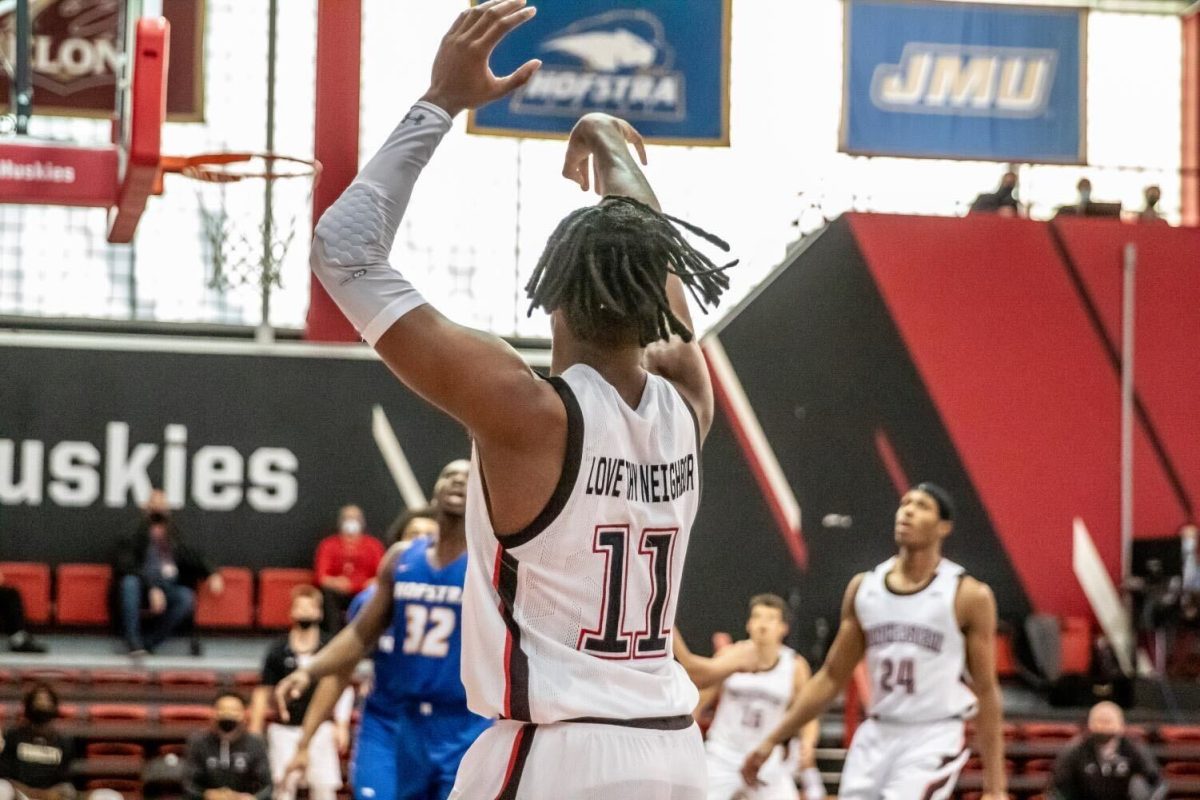Boston University students renew push to remove the name of colonial military leader from residence hall
A sign installed on the outside of 610 Beacon St. reads “Myles Standish Hall.” Members of the university’s College of Arts and Sciences Anti-Racist Initiative Group and student government have written an open letter requesting for this residence hall’s name to be changed.
February 12, 2023
Over 170 student organizations at Boston University signed an open letter written by members of the College of Arts and Sciences Anti-Racist Initiative Group, or CASARI, as well as members of student government, requesting to change the name of a residence hall located at 610 Beacon St., Myles Standish Hall.
In 1621, during a proposed peaceful meeting of colonists and Indigenous peoples, military leaders of the Plymouth Colony, including Myles Standish, slaughtered two chiefs, Pecksuit and Wittawamut, as well as five other Natives living in the village in what is now known as the Massacre at Wessagusset.
The Massachusett Tribe at Ponkapoag is a group of descendants of Chickataubut’s Band of Massachusett at Neponset. In September 2021, along with a Change.org petition, former BU professor Travis Franks wrote to BU President Robert A. Brown in collaboration with the Massachusett Tribe, asking him to rename Myles Standish Hall. According to BU’s Daily Free Press, President Brown wrote back saying he was “not prepared to remove his name at this time.”
Brown said Standish had no connection to BU, and was a “capable and flawed individual.” Therefore he did not feel compelled to rename the building to Wituwamat Memorial Hall as requested by the tribe.
“We bought the building with that name and kept the name,” said Adam Shamsi, a third-year political science major at BU and member of CASARI. “So it’s something that we have complete control over.”
Shamsi wrote the first draft of the open letter. Nearly half of BU’s student run organizations on campus have signed the final draft of the open letter which was completed this past November.

“We got a surprising amount of respondents, saying that this is something they’ve been wanting to work on more, something that they’re interested in learning about more,” Shamsi said. “People are very optimistic and excited to join this initiative.”
At the end of this academic year, Brown will be stepping down from his position as president of BU. Shamsi and his peers are hopeful that if Brown cannot make the change on 610 Beacon St., then the following president will.
“It could be an easy action item for the next president that comes in,” Shamsi said.
Another action item for CASARI is building up and expanding the Indigenous community and resources at BU. According to the letter, CASARI, as well as the other campus groups who signed on, believes BU’s lack of Native students and faculty as well as the lack of programs and support for the Indigenous community is unacceptable.
“The entire motivation driving this initiative is that BU must treat Indigenous students equally to the other students that are involved in this university and the other faculty and staff members who work for the university as well,” said Anne Joseph, a second-year sociology major at BU. “We’ve seen alarming rates of the amount of diversity in terms of Indigenous students in the university and Indigenous faculty members in the university. It is completely appalling and does not reflect the national statistics of the diversity of Indigenous students.”
Joseph said BU has 15 Indigenous students and one Indigenous faculty member as of fall 2021, the most recent year of publicly available data from the Office of the University Registrar. Additionally, over the past five years the number of Indigenous students enrolled has declined by 60%.
Other student criticisms of BU include a lack of Indigenous studies programs and general community resources for Indigenous people.
“Many other large regional research institutions like ourselves have these programs implemented already,” Joseph said.
In the open letter, the students not only ask for the removal of Myles Standish Hall’s name, but also to “develop and fund initiatives to support Native students, faculty and staff, and local Indigenous communities.”
“Those are the voices of the students,” Joseph said. “Those are the voices that need to be heard.”
However, Professor Franks’ original efforts to rename Myles Standish Hall back in 2021 have not been forgotten or overlooked. Both Shamsi and Joseph spoke highly of Franks, and although he is now teaching at Utah State University, he still feels strongly about this initiative, they said.
Franks left BU because he was in a temporary post-doctoral position, and although he was proud to be associated with the university, he said, he believes there is much change to be made.
“I know the university’s mission statement seems very in line with what we were trying to do with renaming the building,” Franks said. “The unwillingness to rename the building does not reflect well on the university’s willingness to do more. In the grand scheme of things, renaming a building is such a small ask.”
Franks also expressed his admiration for the students in CASARI running this initiative.
“I’m incredibly proud of those students who have stood up and taken leadership roles in this,” Franks said.
He recalled that BU celebrates Indigenous People’s Day because of an initiative run by students, and said he believes change is most effectively created by students.
“The students who are doing this work, they’re incredibly brave,” Franks said. “They’re incredibly dedicated. It’s really inspiring to see how they’ve carried on with this.”







